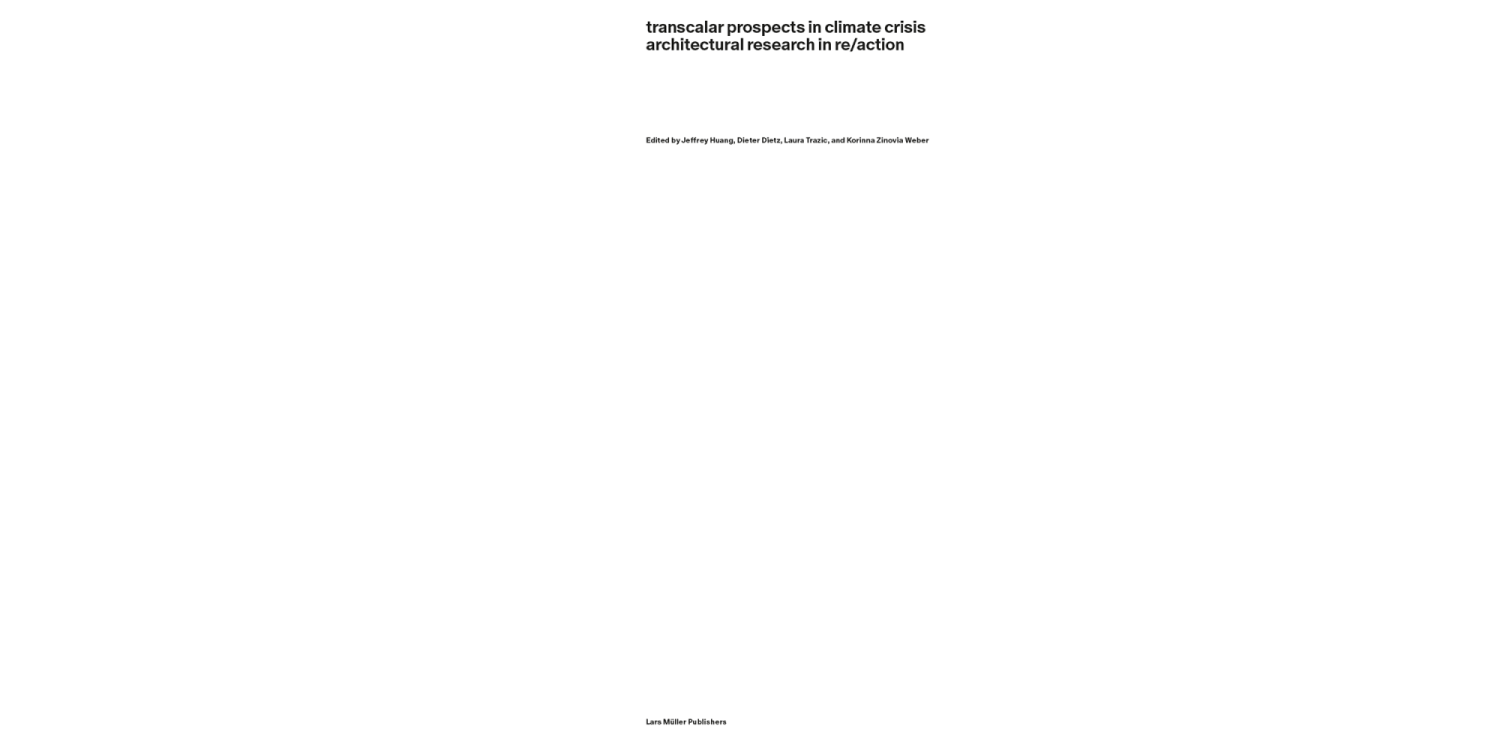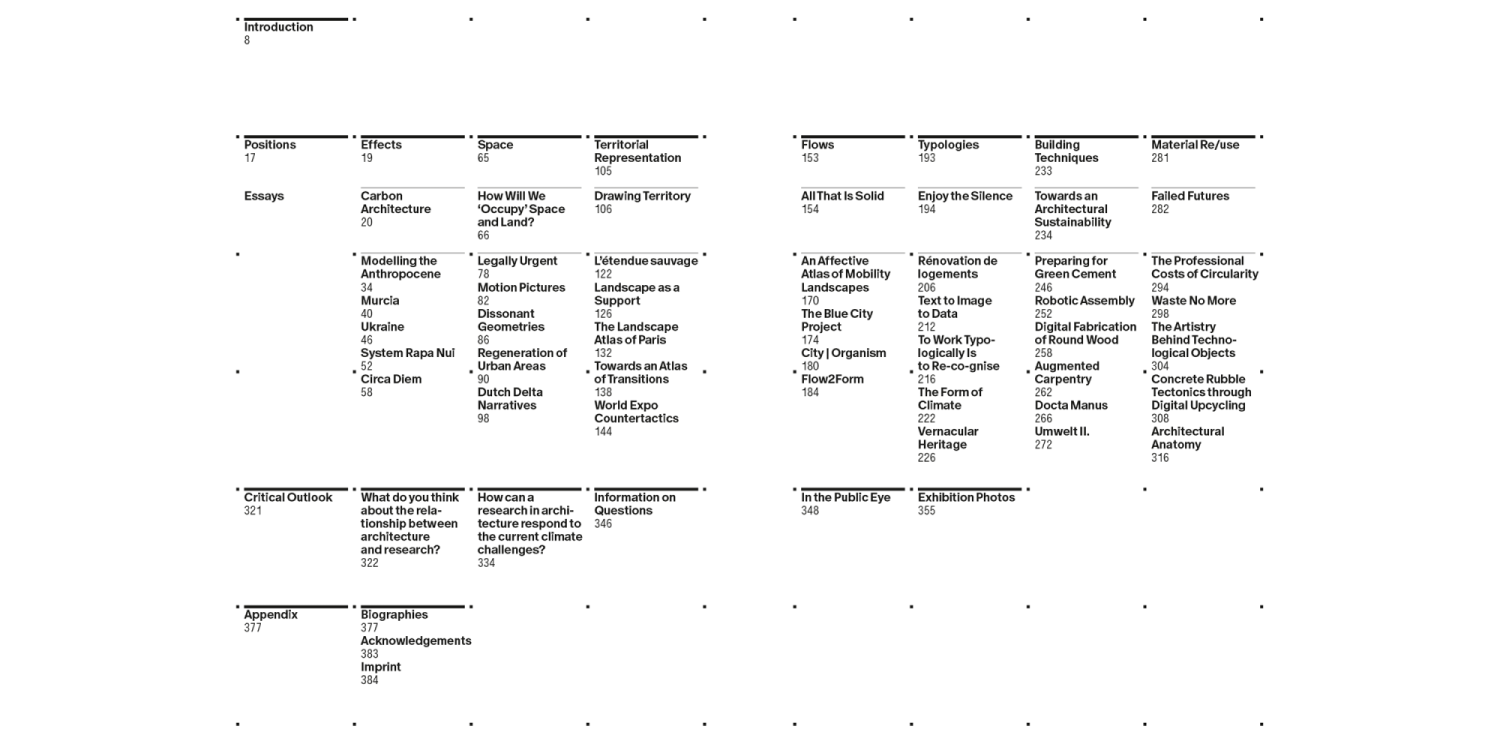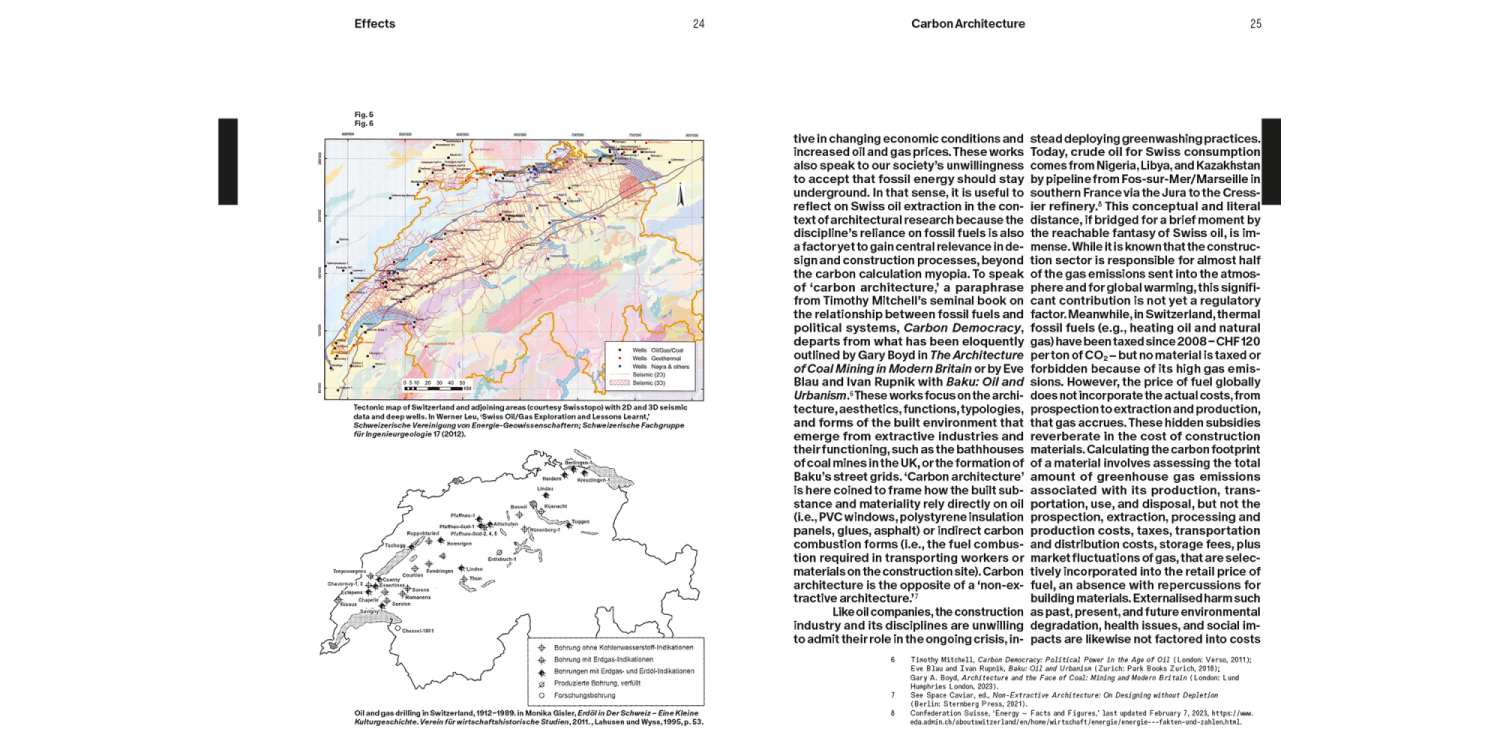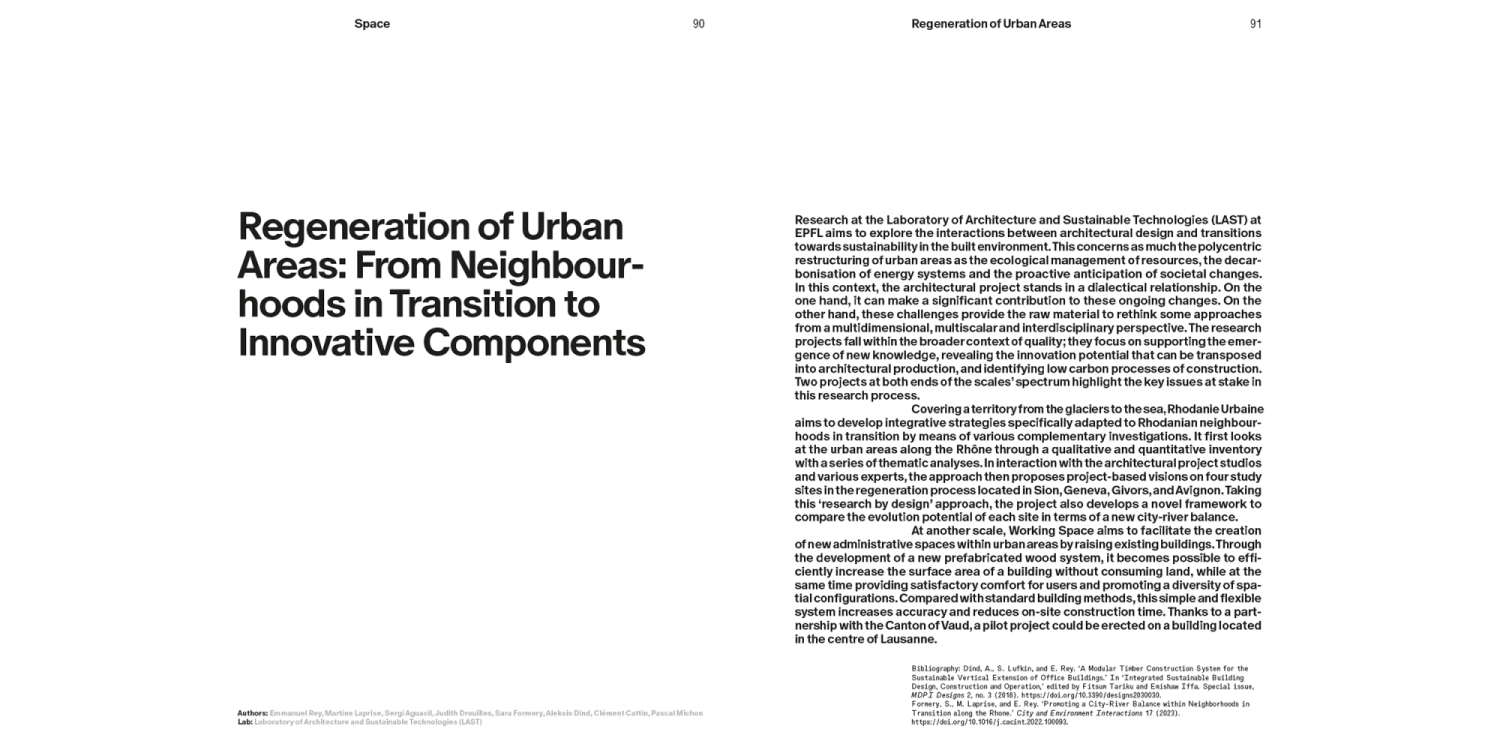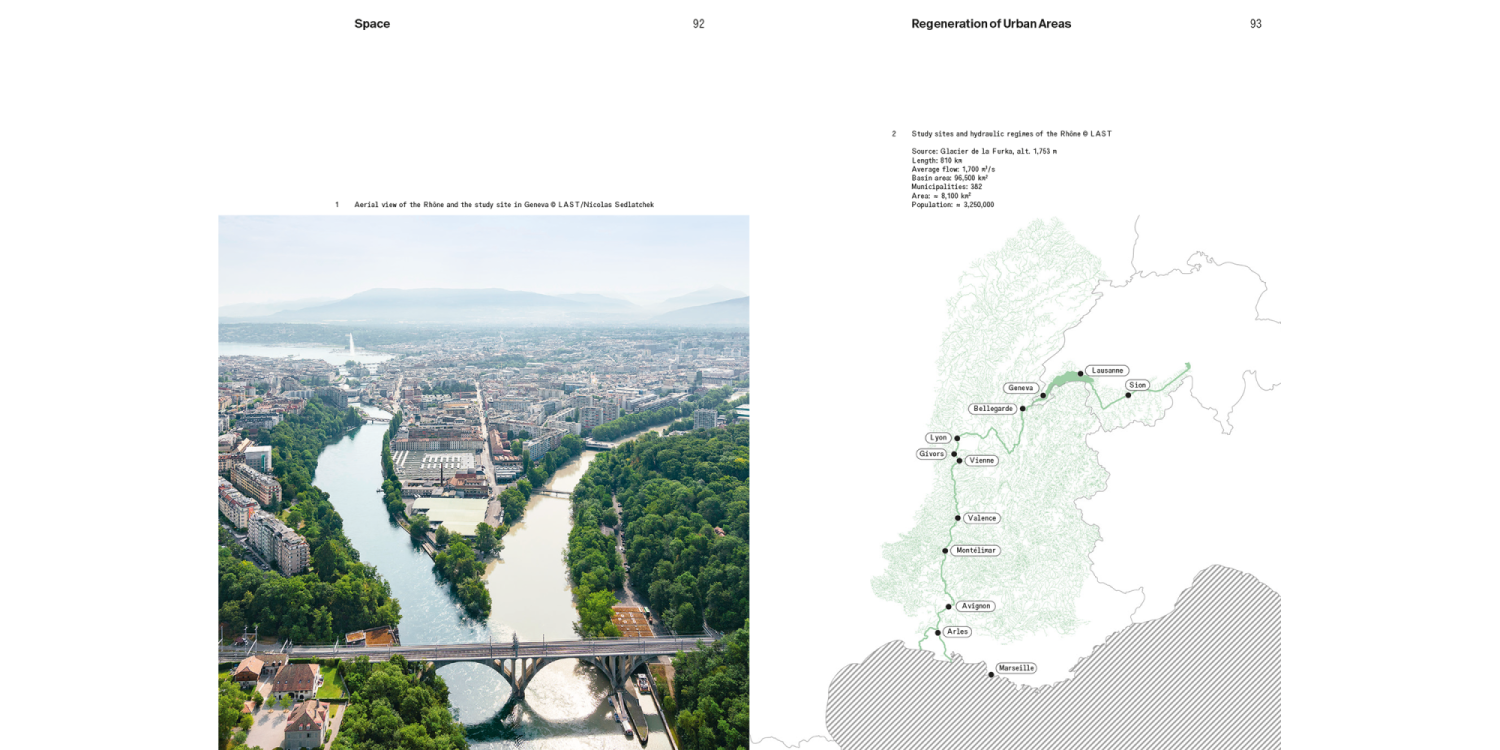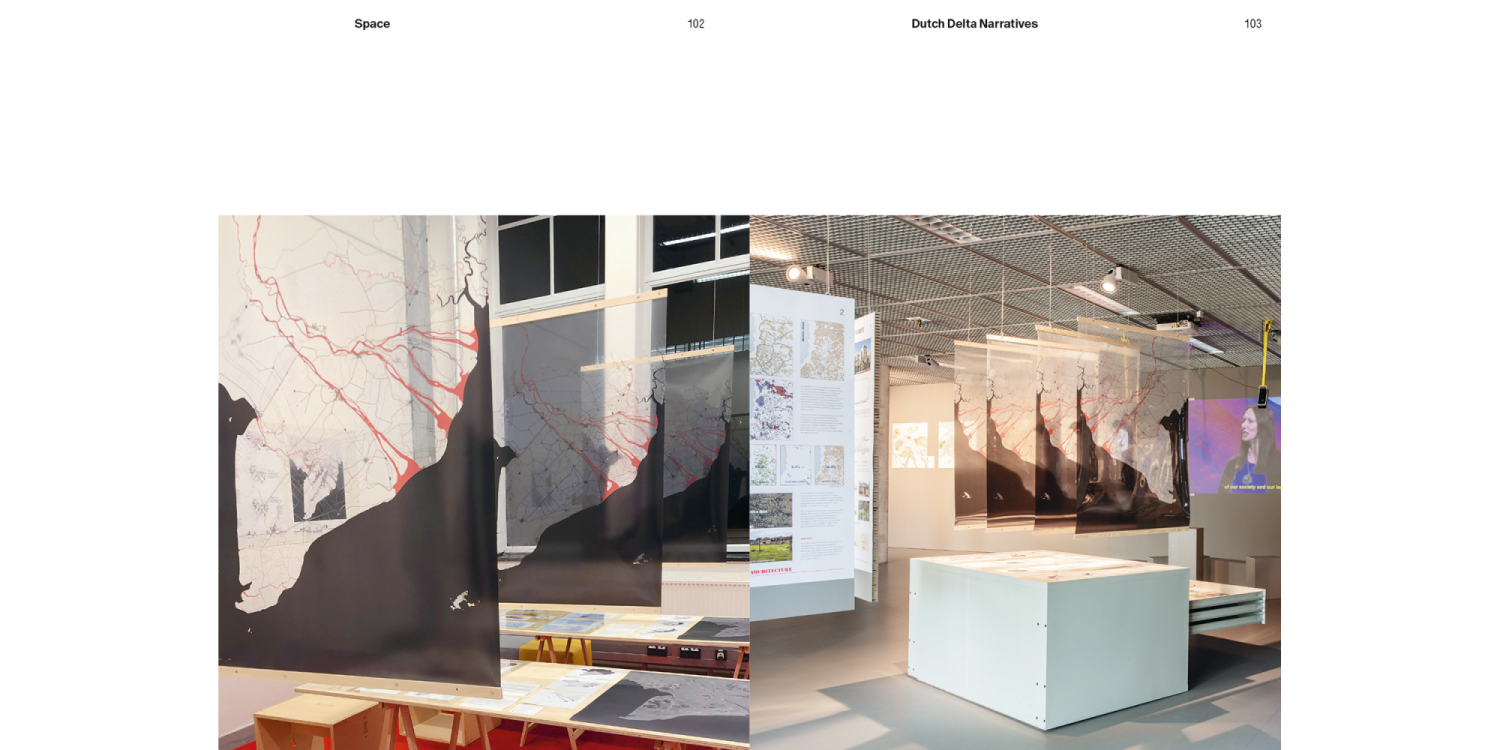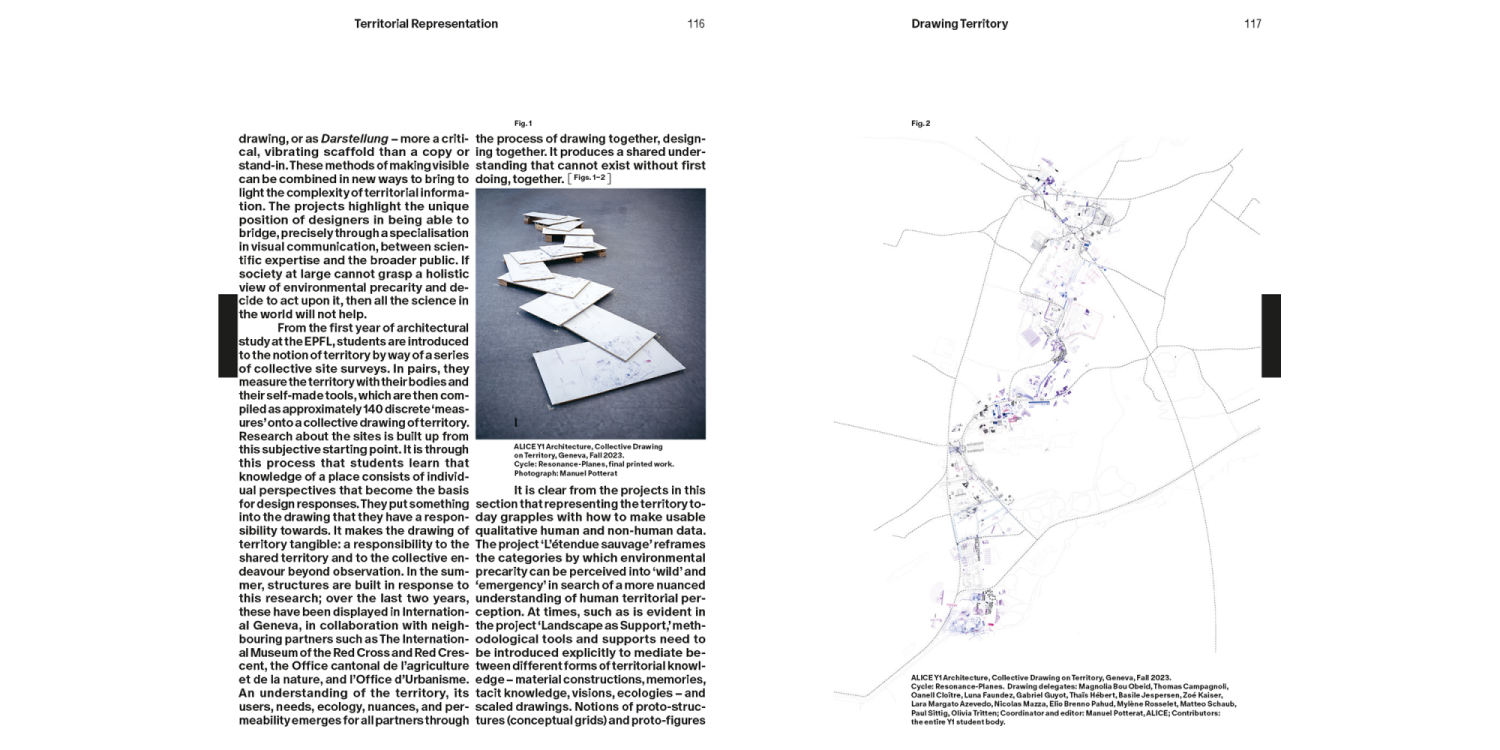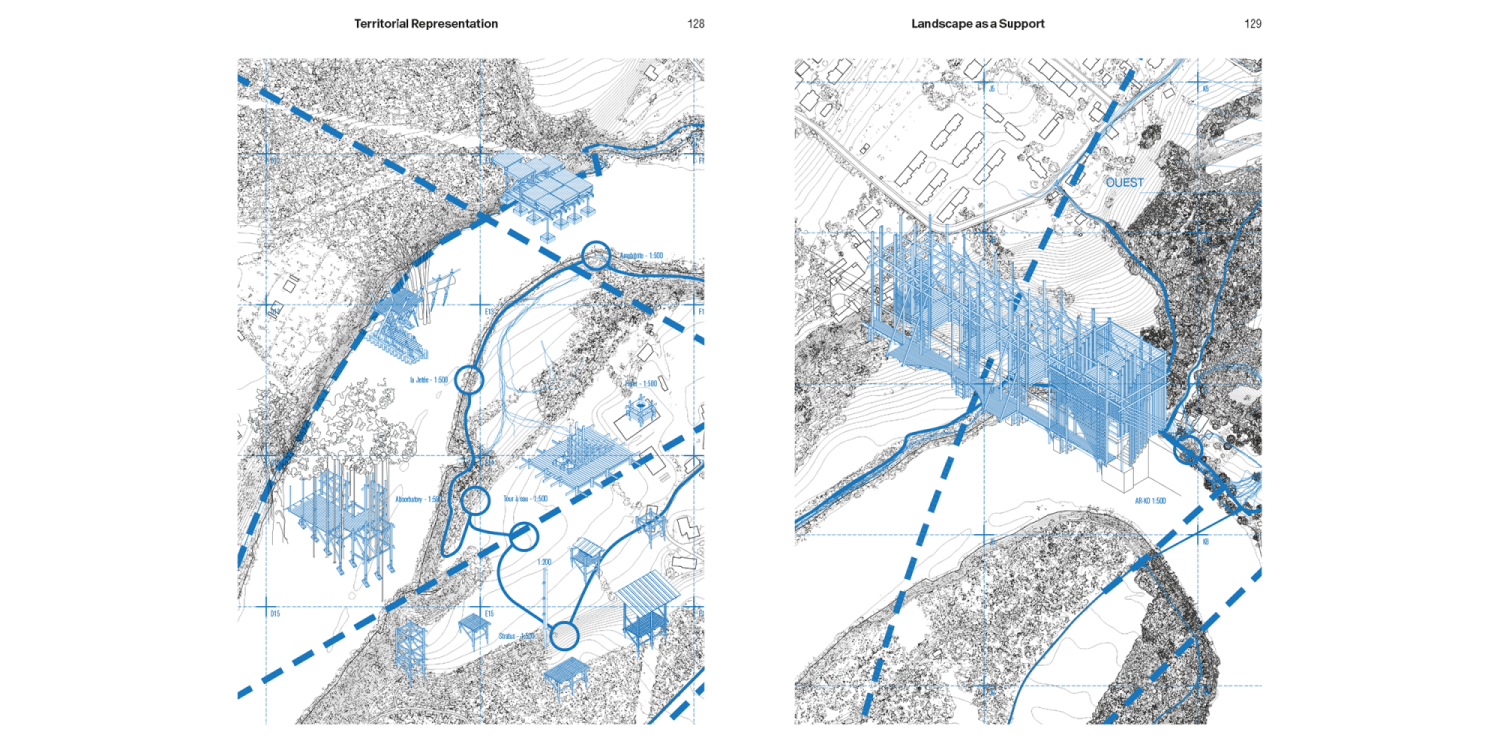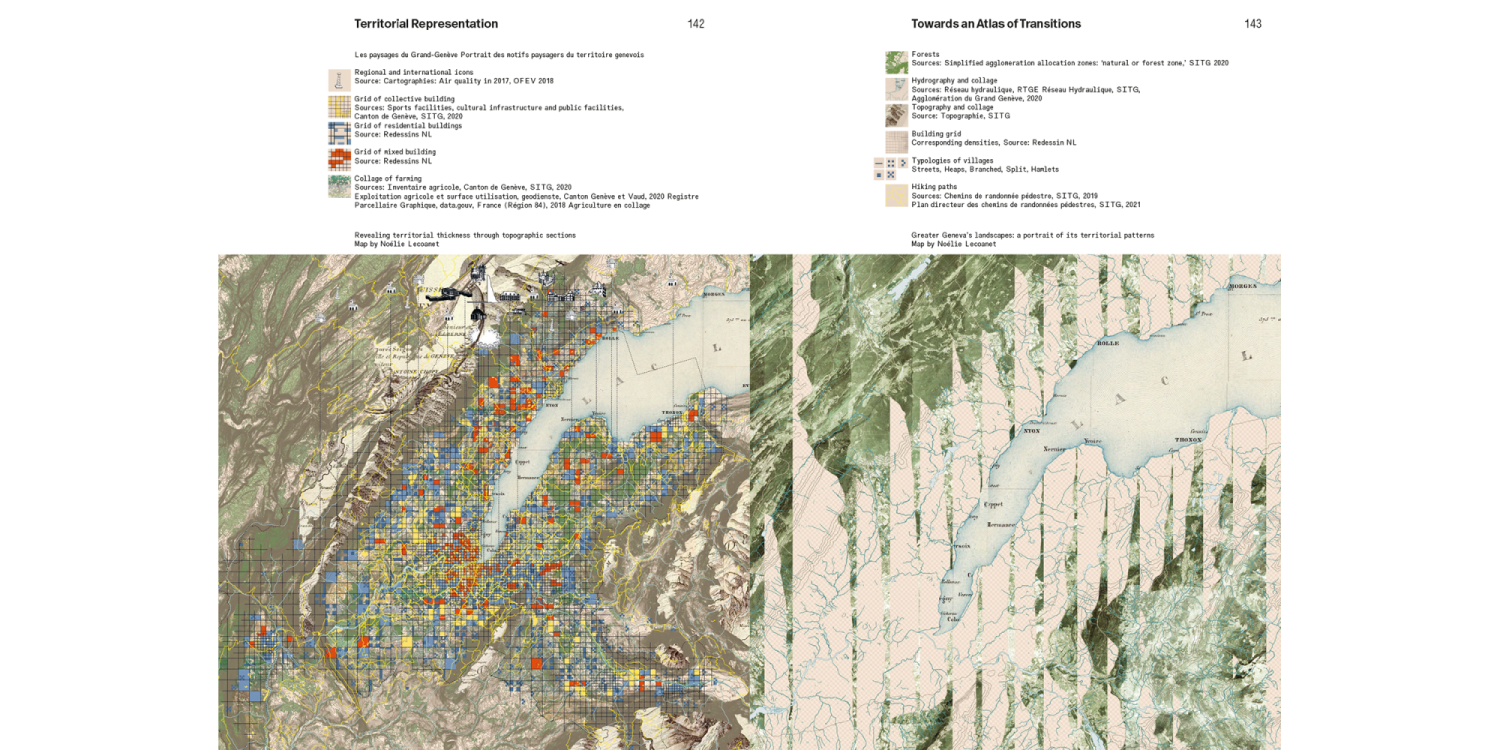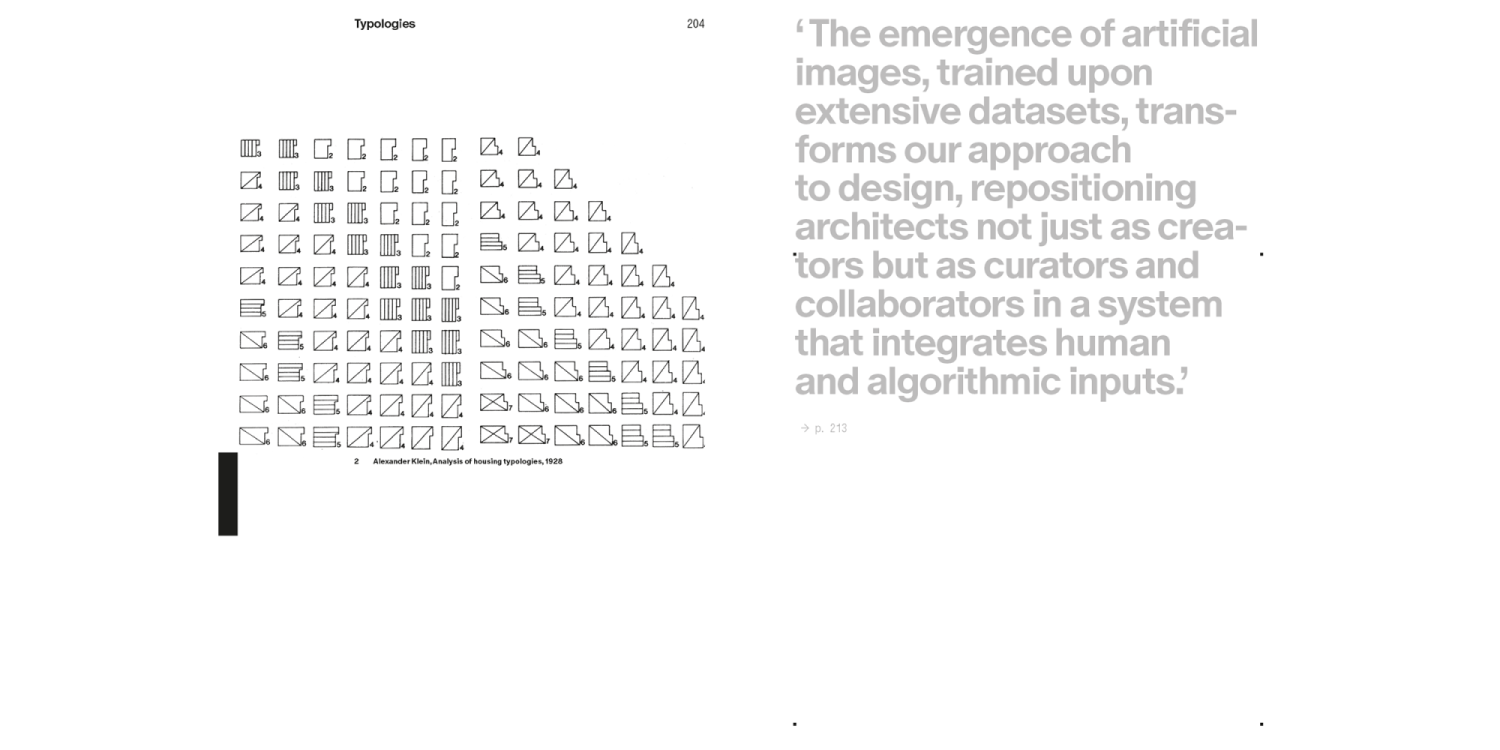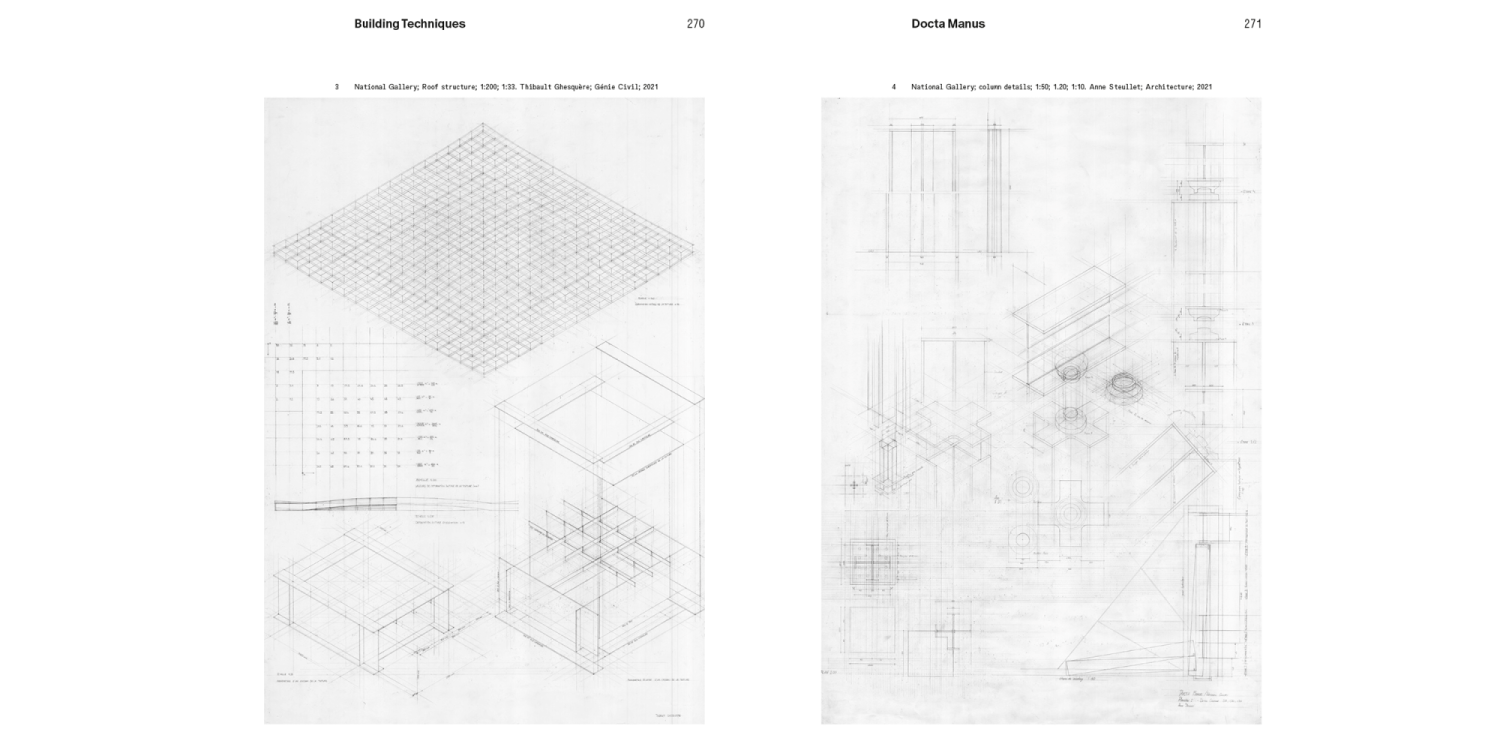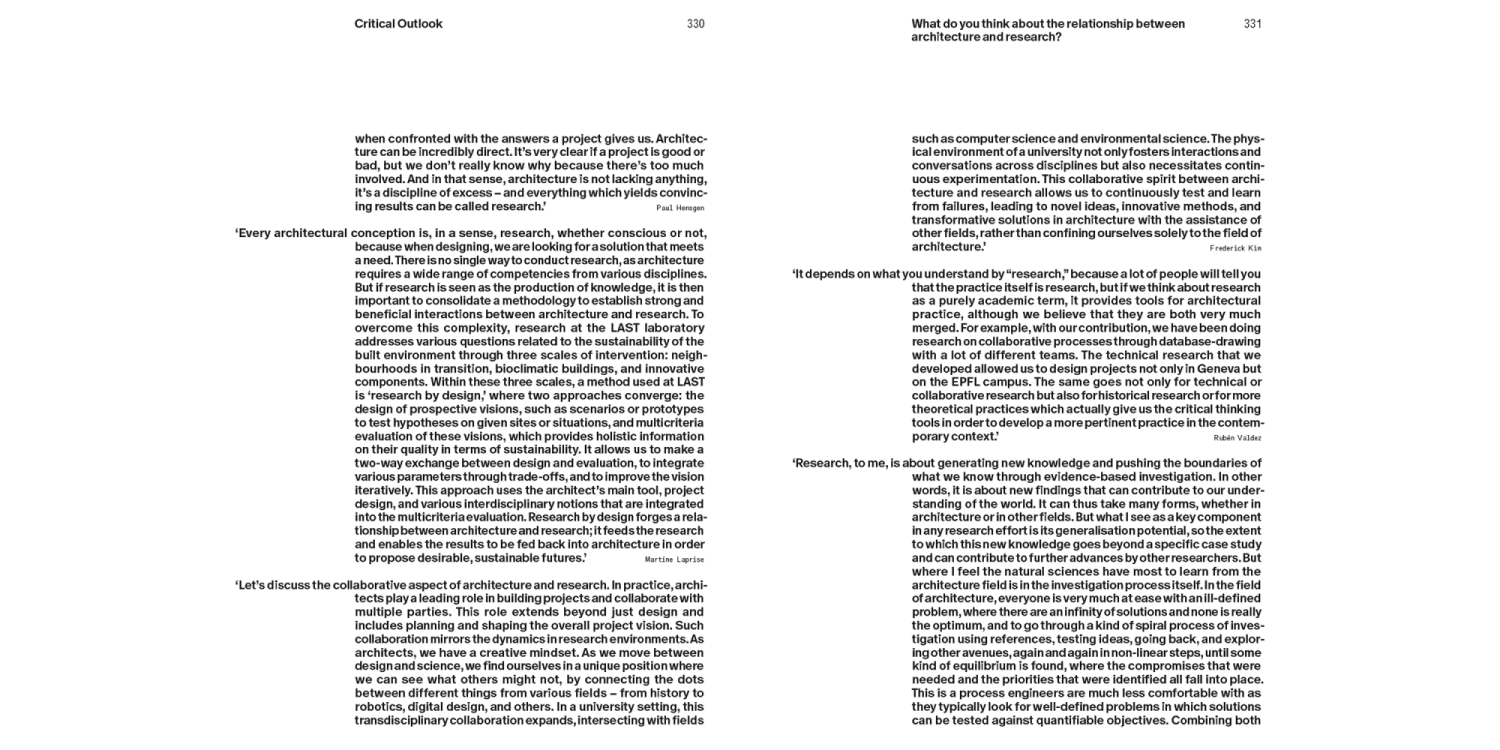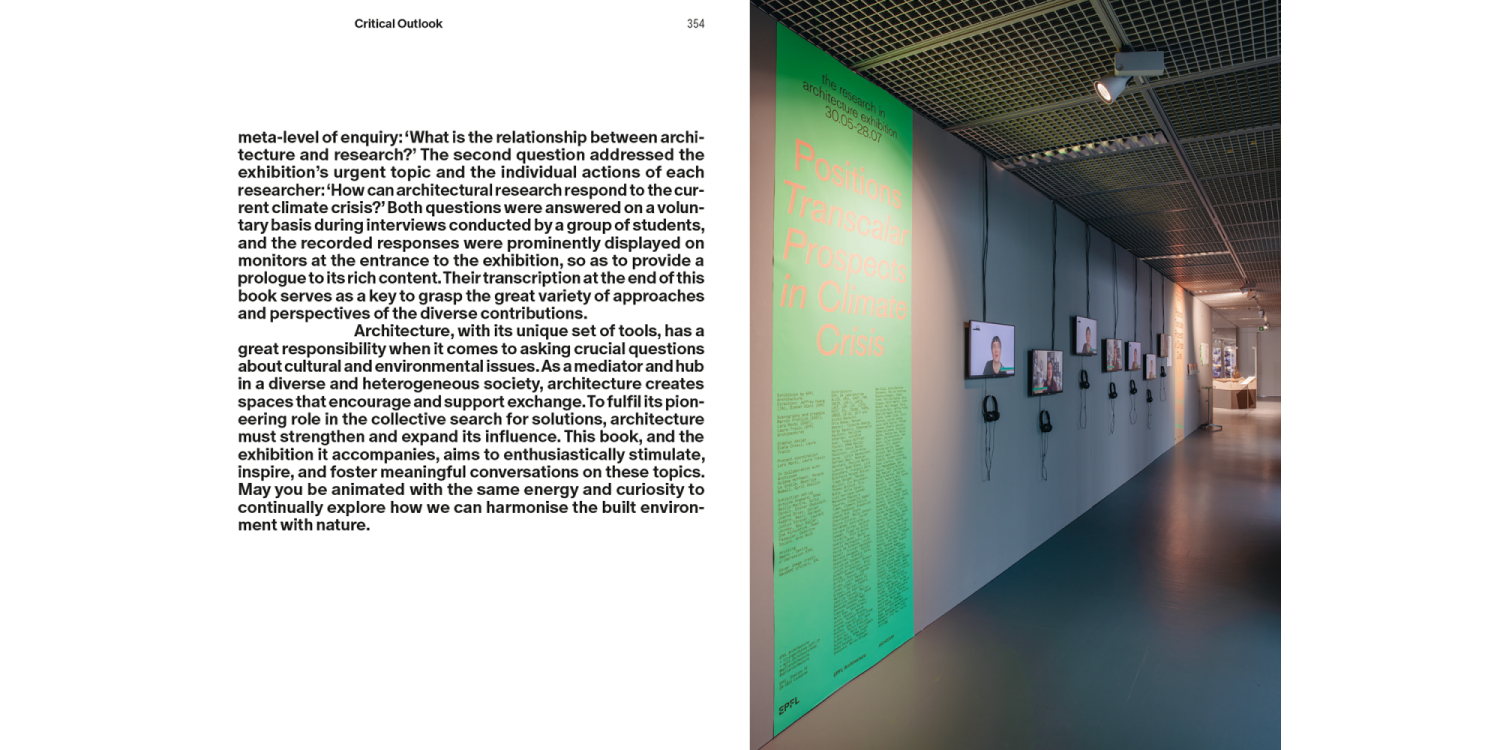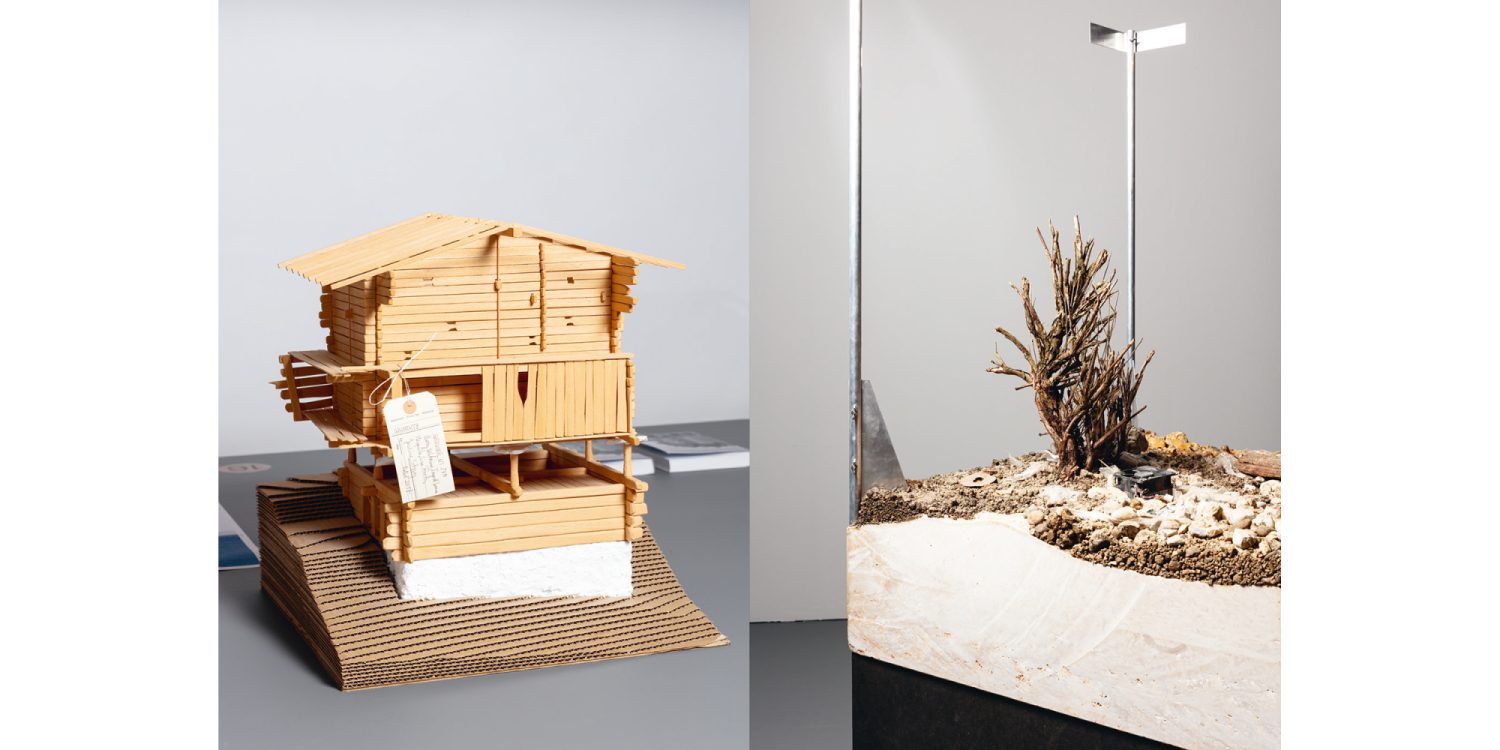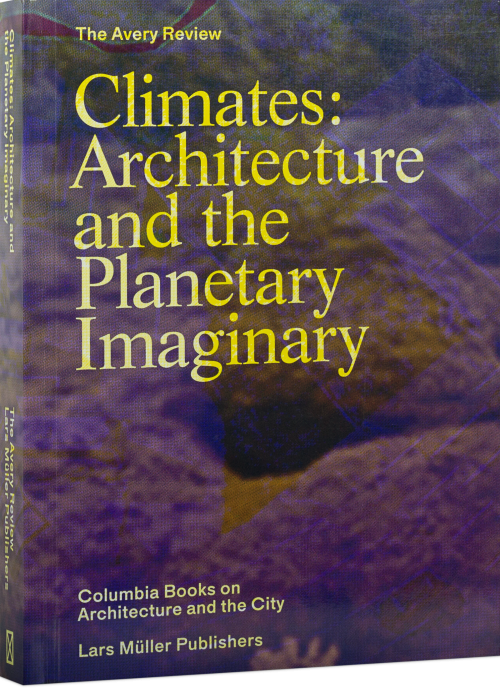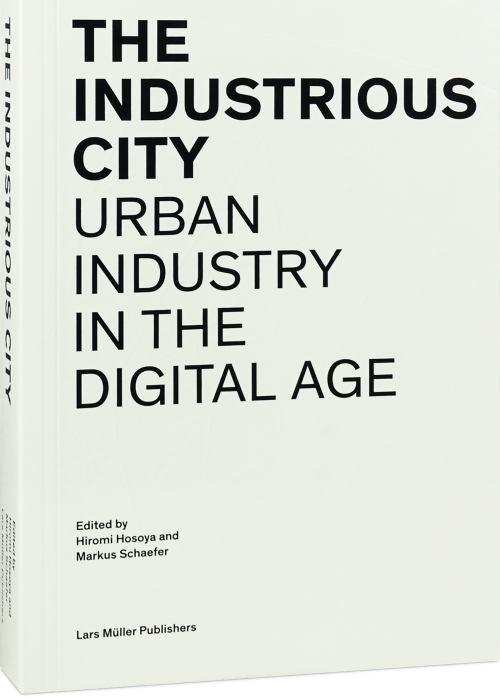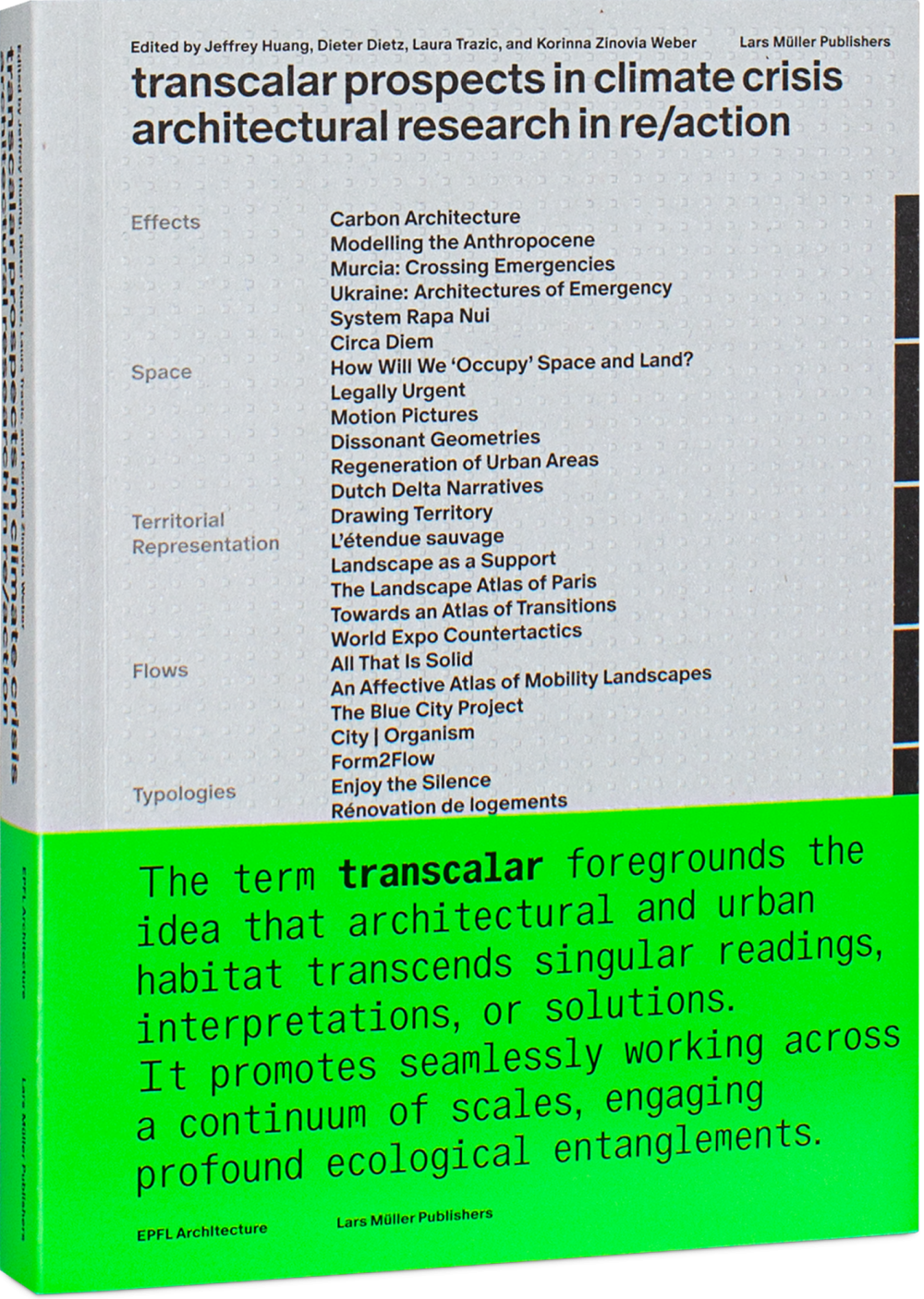
Transcalar Prospects in Climate Crisis
As humanity grapples with the escalating challenges of climate change, the discipline of architecture finds itself at a critical juncture. The urgency of the situation demands that schools of architecture not only contribute to envisioning more serene futures but also equip the next generation of architects with the audacity to question, project, criticize, explore and imagine alternative solutions.
Architectural research is in re/action to this climate crisis. “Transcalar Prospects in Climate Crisis” offers a vital compilation of research projects and essays reflecting the investigative efforts at EPFL Architecture. Addressing critical issues like material uses, land and soil degradation, environmental justice and circular urban flows, the book brings together diverse, entangled perspectives and transcalar vantage points. It navigates complex factors such as comfort, standards, profit and individual needs, across a wide ecological spectrum. The book is a must-read for architects, urban planners, designers, scholars, and anyone seeking knowledge and inspiration for climate action, urging a conscious and critical, transcalar response to one of the most pressing issues of our time.
As humanity grapples with the escalating challenges of climate change, the discipline of architecture finds itself at a critical juncture. The urgency of the situation demands that schools of architecture not only contribute to envisioning more serene futures but also equip the next generation of architects with the audacity to question, project, criticize, explore and imagine alternative solutions.
Architectural research is in re/action to this climate crisis. “Transcalar Prospects in Climate Crisis” offers a vital compilation of research projects and essays reflecting the investigative efforts at EPFL Architecture. Addressing critical issues like material uses, land and soil degradation, environmental justice and circular urban flows, the book brings together diverse, entangled perspectives and transcalar vantage points. It navigates complex factors such as comfort, standards, profit and individual needs, across a wide ecological spectrum. The book is a must-read for architects, urban planners, designers, scholars, and anyone seeking knowledge and inspiration for climate action, urging a conscious and critical, transcalar response to one of the most pressing issues of our time.
